Mother Tongues – making sure migrants aren’t lost in translation
Mother Tongues is a proposal for an open source network of digital phrasebook addressing migrant communities lack of language skills.
Started as an implementation of phrasebooks being distributed in refugee camps to facilitate communication in the absence of interpreters, it aims to become a service supporting migrants’ settlement in European cities.
In times of migration crisis, it aims to facilitate communication in emergency situations as much as fostering social inclusion while accomplishing daily life tasks. It also empowers individuals to contribute to the social good of their local community, by using cheap tech, off-the-shelf components and relying on a non-commercial, open source infrastructure.
The network consists of a series of digital devices streaming translations as digital content – written text, audio recordings, icons – broadcasted by media wi-fi servers scattered around the city and readable through any laptop or mobile device. Basic unit of the project is in fact a “tongue”: an open source single board computer (Raspberry pi) connected to a SD card, a wi-fi dongle and a USB charger. The SD memory contains the content being broadcasted and users can access it by just connecting to an open wi-fi, without need for Internet or apps.
Tongues can be placed in specific locations where migrants are required to interact with locals, without an interpreter, using specific vocabulary. Asking for directions at a train station, enquiring about their rights with a lawyer, describing their symptoms to a doctor. The interface displayed on a smartphone connected to any “tongue wifi” allows to browse existing translations and add new ones. Tailoring the service to the needs of the community using it.
martamonge.org/Mother-Tongues-WIP



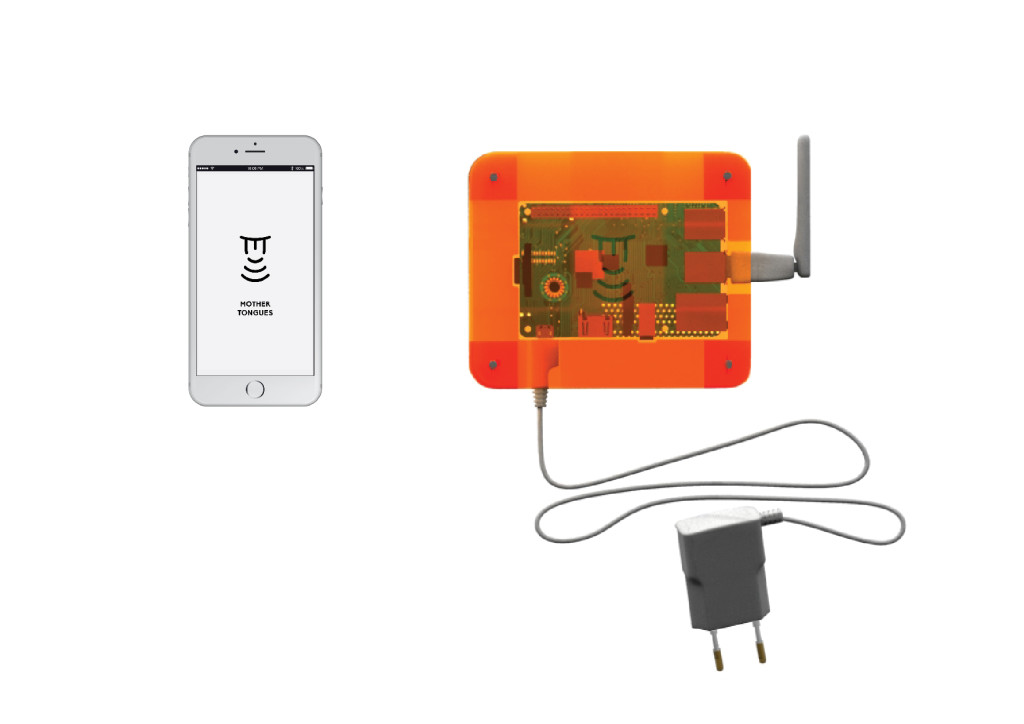
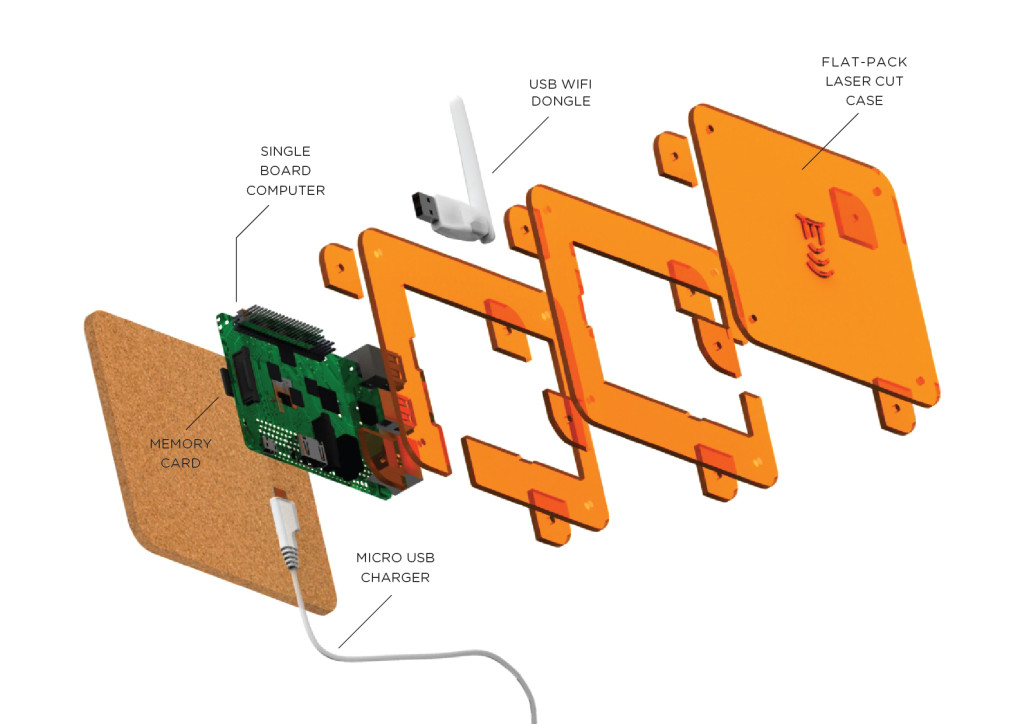
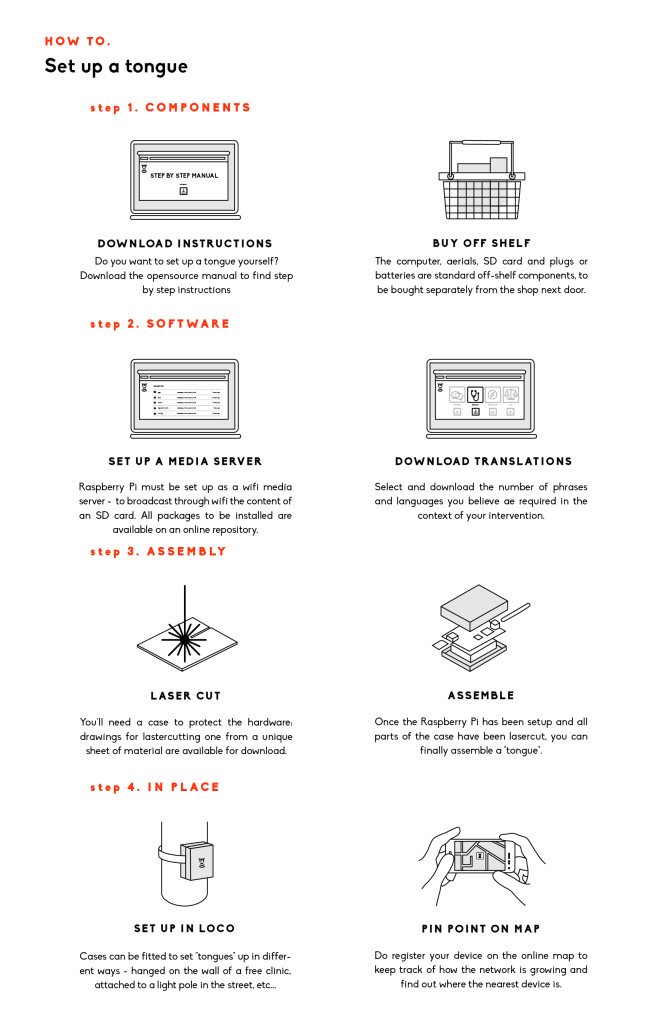
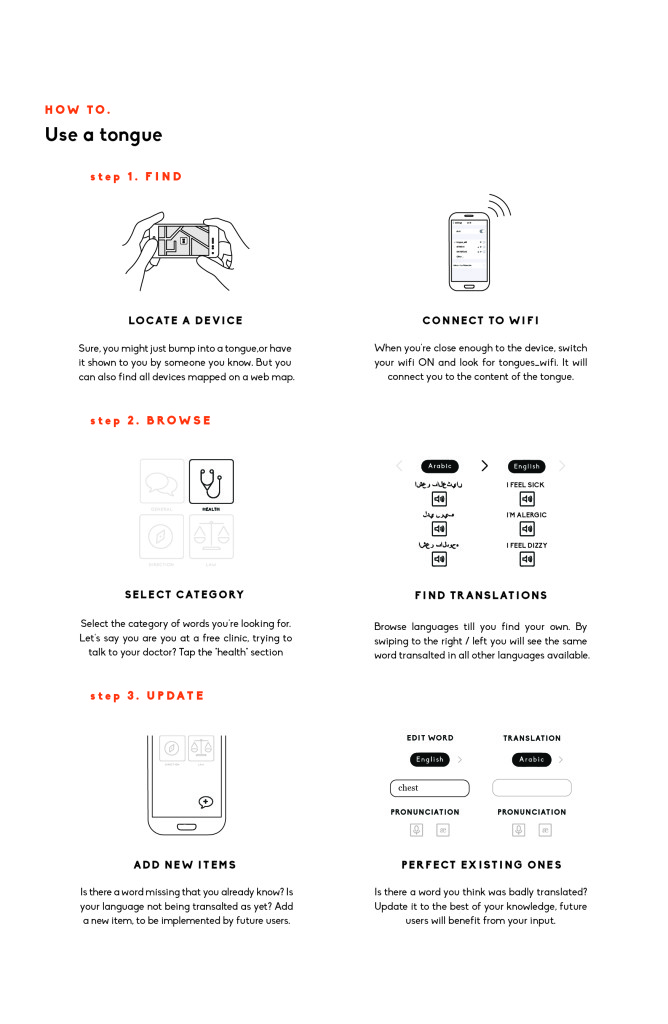
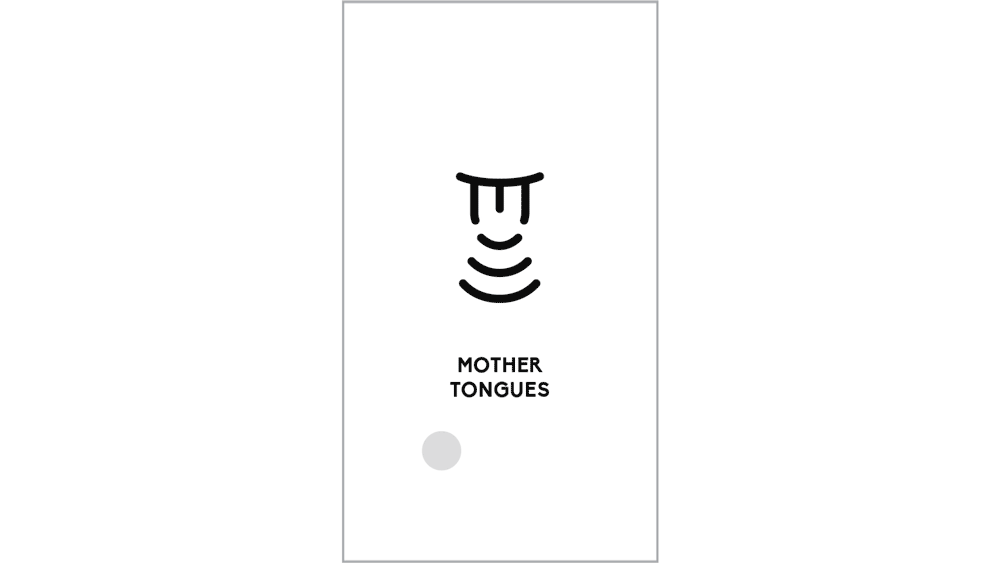
Marta, thank you for sharing your project, which puts the spotlight on the refugee crisis and inquires what designers can do in such context. I understand the project is still on a developing phase (?), yet I have a couple of questions to better understand: (1) how does someone who would like to make use of these phrasebooks know that they are available on a certain range? I ask this because I am familiar with PirateBox, and see the value of sharing content within small meshworks, but sometimes wonder how effective will it be if it is not combined with an offline (analogue) communication… Other thing I am curious about is (2) why are there no people at all in any of the visualizations you share? Is this a conscious choice? I fear when such complex social and political issues are translated into a -merely- technological solution.
hi pablo, yes my work is still under development phase as I am working on fully setting up the digital / coding part! I’d be happy to answer your questions… (1) they’re supposed to be pinpointed on an open street map. Also, it’s not actually a mesh network but each device would work independently as the content is uploaded by whoever sets up the device by picking the relevant transaltions from an online library. So basically you could just access the content online or, without need for internet connection, by connecting to a device. (2) I do agree on the risk of turning social issues into tech ones, but the lack of people is mainly due to the fact that it’s under development so I though it wouldn’t be honest to pretend like it’s gone through lots of user testing. 🙂
Thanks for your quick responses Marta. Regarding the first question, for me its clear the functioning, but don’t you think that an analogue way of communicating the ‘availability’ of the phrasebooks in the context where the ‘tongue’ is located would make it more ‘visible’ and, thus, more easy to access? I am just trying to imagine the situation in itself, of a migrant in a public place (say, a train station) who might need such tool, but perhaps he will ignore the fact that it exists and its available (unless he has already visited the online map). Sometimes the problem is not the ‘availability’ of resources, but its actual communication…
Yes it’s a really fair observation and that would be a very effective first mean of contact with the service. It might be a poster with a very brief description in different translations. Thanks for the insight.